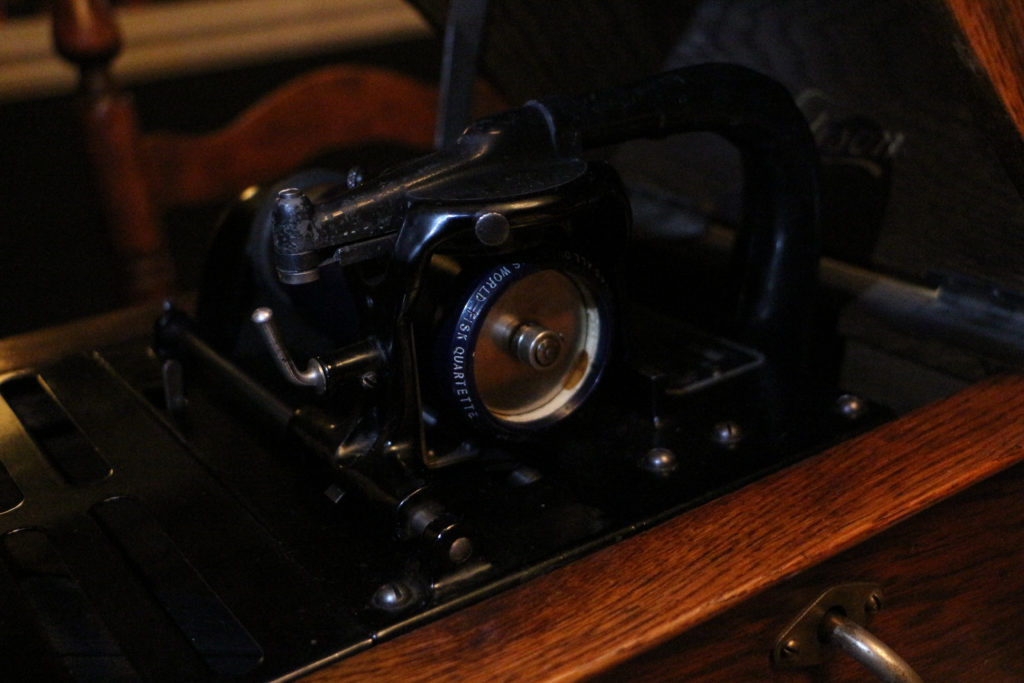
One of the oldest recordings of the Fisk Jubilee Quartet recently resurfaced, underlining the group’s historic importance to the Black community.
The recording is on a wax cylinder, about the size of a camera lens.
“Each one of these cylinders holds one song,” says Michael Deurlein, an East Nashville resident who inherited the recordings.
He holds the cylinder gingerly, twisting it in his hand to show the inscription: Fisk Quartet, 1912.
He slides it into an old Edison phonograph, cranks a handle on the side, and it whirrs to life.
 Paige Pfleger WPLN News
Paige Pfleger WPLN NewsThis recording of the Fisk Quartet is one of the earliest known recordings of the group.
The recording starts with a few seconds of crackling, then a male voice begins to sing. He’s joined in harmony by three other voices, sliding gracefully into the next notes of the song.
The phonograph and this wax cylinder belonged to an old family friend of Deurlein’s named Dona Horde. Horde grew up in Virginia, and was the daughter of a formerly enslaved woman and a prominent white judge.
She was abandoned as a child, but found a way to make a living for herself by selling food to men working on the railroad.
A receipt shows how she paid for the phonograph and the cylinders in installments. She bought them in 1919 for $45.80.
 Paige Pfleger WPLN News
Paige Pfleger WPLN NewsThe receipt shows the phonograph and some cylinders were purchased in 1919 for $45.80
“Look at how she paid for it!” says Dr. Paul Kwami, head of the Fisk Jubilee Singers. “She wanted it. She knew the value of this.”
Kwami says the purchase illustrates how important the group was to Black Americans at that time.
“The sound is much clearer than I had expected,” he says. “I’ve listed to old recordings, but this is amazing.”
He smiles to himself, closing his eyes as the recording comes to an end. When the cylinder stops spinning with a gentle click, he opens them again and says, “Wow.”

